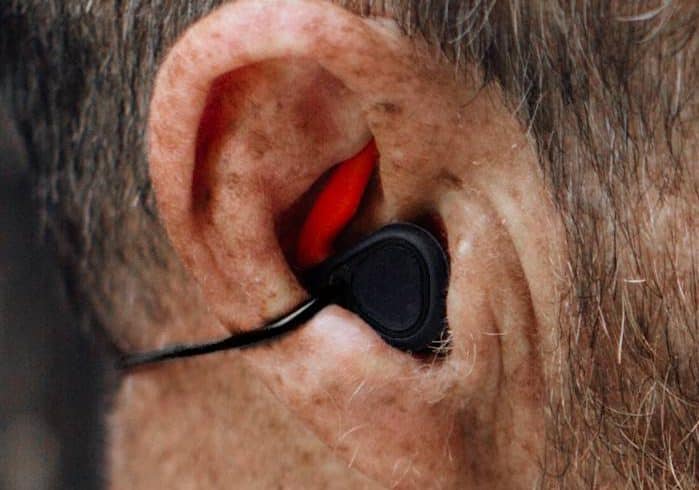Why you should protect your ears
Many surfers know that it might be a good idea to protect their ears when they are in the water. However, many people are unaware of the risks until they are affected. When are you at risk? What are the symptoms?
When the bones within the ear canal are exposed to cold water or wind, the bones grow. This abnormal bone growth, or exostosis, which is Greek for “new bone,” is usually referred to as surfer’s ear. The colder the water, the faster the bones grow. Therefore, surfer’s ear is more common in cold water areas. According to sport medicine physician Maarten Verschure, ears are at risk as soon as the water temperature is below 17.5°C (63.5°F), which includes places like southern California and Europe during the winter months. In windy conditions there is a risk even at warmer temperatures as the wind creates a chill factor to your wet ears.

Cold water surfer, photo by Mats Kahlström. Photo on top of the page: Tom Carroll after surgery in his right ear.
When the bones within the ear grow, the ear canal becomes narrower. Lucky individuals do not suffer any symptoms from surfer’s ear, but some are plagued with constant pain and, in some cases, ringing in the ears. Surfer’s ear can be treated with surgery by removing the extra bones. The surgery will require that the individual stay out of the water for weeks, and it is not without risk. If complications arise, this could lead to paralysis of the facial nerve, an ear drum perforation, or damage to the jaw joint. For those who are not too sensitive, a surgery can be viewed here.
As the ear canal becomes narrower, the ears become worse at drying after being in the water. If you notice that your ears are being blocked by water for a longer time than usual, this can be a warning sign for surfer’s ear. Sea water is full of bacteria. As the water becomes trapped inside the ears, there is a higher risk for irritation and development of infections; thus, recurring ear infections also is a sign of surfer’s ear. If there is irritation, it usually starts to ache, and if an ear infection develops, the aching worsens.
Ear infections are sometimes also called swimmer’s ear or otitis, and they can be painful, make an individual feel ill, and even cause temporary deafness. Infections can generate a bad smell, and they do not look pretty. Any contact with the ocean makes the infection worse. Medical treatment, such as eardrops, is usually necessary. Early treatment helps prevent complications and development of a more serious infection.

Best way to keep your ears protected. Get your ear plugs here.
Bacteria are everywhere, and they thrive particularly well in warmer waters, so it is always a good idea to protect your ears regardless of the water temperature. Preventing surfer’s ear and infections using ear plugs is definitely a good idea. With SurfEars® you can protect your ears without affecting your hearing—less hassle, fewer visits to the doctor, and more time in the water!
